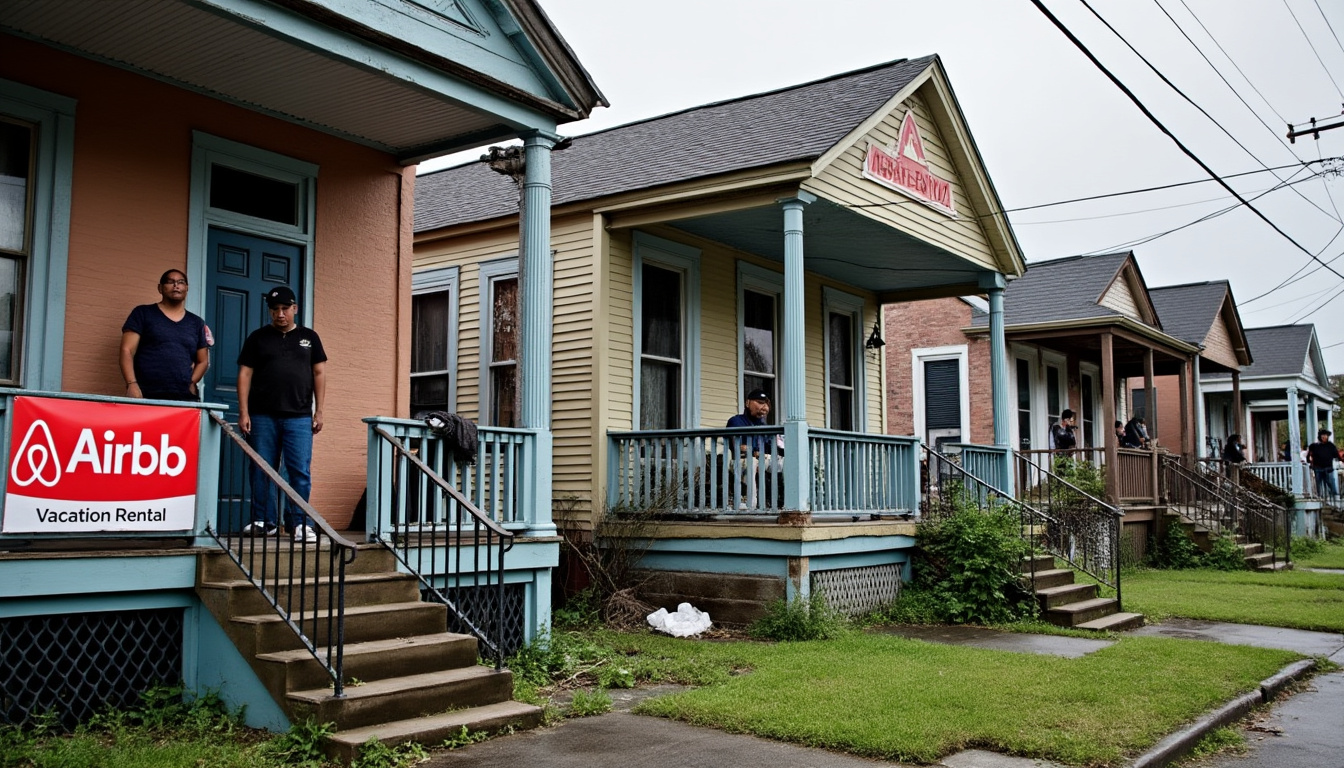Airbnb is set to appeal a federal court decision that upheld stringent regulations regarding short-term rentals in New Orleans, marking an important chapter in the ongoing debate between municipal authorities and online rental platforms. Recent rulings have been pivotal in shaping how vacation rentals operate and the balance communities seek to achieve between tourism interests and local housing needs. As Airbnb prepares its legal moves, the implications for the rental market could reverberate far beyond New Orleans.
Background of New Orleans Short-Term Rental Regulations
New Orleans has been on the forefront of regulatory campaigns surrounding short-term rentals. These regulations, which first took shape in 2019, aim to address a growing concern: the impact of vacation rentals on housing affordability and community character. The city’s residents have expressed worries that platforms like Airbnb, Expedia, and Booking.com exacerbate housing shortages, forcing local families further out of their neighborhoods. In response, city officials have instituted a range of rules, including permitting requirements and limitations on rental operations.

The specifics of New Orleans’ regulations include a requirement that hosts obtain permits and limiting the number of rentals per block. In 2023, an ordinance was put into place which further tightened these provisions, mandating that a property owner must reside on-site in order to qualify for a permit. This legislative framework has faced criticism not just from Airbnb hosts but also from legal experts, who argue that certain measures may infringe on owners’ constitutional rights.
Legal Battles Over Short-Term Rental Rights
Airbnb’s legal challenge to these new regulations comes after most provisions were upheld by U.S. District Judge Jay Zainey. His ruling has been celebrated by city officials, with Mayor LaToya Cantrell asserting that the decision represents a win for New Orleans residents. The Mayor emphasized the importance of municipal authority to regulate thriving industries within a city, noting that maintaining the character of neighborhoods is vital to community integrity.
The lawsuit brought forth by Airbnb highlights a nationwide problem. Local jurisdictions are grappling with how to regulate the influx of short-term rentals while also protecting the interests of their residents. Numerous cities across the United States have faced similar challenges, with varying degrees of success. Airbnb’s argument claims that regulations interfere with property rights and could constitute an unconstitutional taking of property.
Precedent Cases in Rental Regulation
Another relevant legal battle is the case of Marfil v. City of New Braunfels, which similarly questions the limits of local governments’ regulatory power over short-term rentals. A prevailing sentiment emerges from these cases: local ordinances that severely restrict rental operations might conflict with property rights protected under the U.S. Constitution. Observers note that the 5th Circuit Court—responsible for reviewing Airbnb’s appeal—has jurisdiction over significant precedent-setting cases that could clarify the boundaries of local rental regulations.
In fact, the Hignell-Stark case from New Orleans previously struck down residency requirements for rental hosts. This situation underscores the tension existing between state rights and local regulations. As courts navigate these issues, the outcomes will define the future scope of short-term rental markets across the country.
The Economic Impact of Short-Term Rentals
The economic implications of Airbnb’s operations in cities like New Orleans are significant. Proponents argue that short-term rentals generate substantial revenues for hosts, attract tourists, and bolster local economies. By offering diverse accommodations, they contribute to a more vibrant local tourism sector, providing options that hotels cannot match in terms of price and unique experiences.

On the flip side, detractors contend that as more properties transition to short-term rentals, the available housing stock for local residents diminishes. This phenomenon increasingly contributes to price inflation within already fragile housing markets. Local government officials argue that these rental platforms do not contribute significantly to housing solutions and, instead, create displacement.
Current Market Trends and Future Implications
As of 2025, the short-term rental market continues to evolve rapidly. With major players like Marriott International and Wyndham Hotels & Resorts also entering this space, competition is increasing, causing traditional hotels to reevaluate their business strategies. Research indicates that travelers prefer varied accommodations found on platforms like HomeAway, FlipKey, and VRBO for personalized experiences.
Understanding these trends is essential for hosts and stakeholders alike. They must adapt marketing strategies to capture guest interest and remain competitive. Among the effective marketing approaches are:
- Leveraging social media platforms for advertisement.
- Utilizing SEO strategies to enhance visibility on search engines.
- Forming partnerships with local businesses.
- Creating unique selling propositions that promote distinctive amenities.
Community Reactions and Future Regulations
Community sentiments toward short-term rentals vary drastically. On one hand, homeowners see potential financial benefits; on the other hand, long-term residents express dissatisfaction with the changing dynamics of their neighborhoods. Many residents feel neglected by local governments that prioritize tourism over community stability. This clash of interests opens the door to public discourse about the responsibilities of short-term rental platforms.

Public forums have become a common venue for residents to voice their concerns and influence future policies. Some residents propose stricter enforcement of existing laws, while others seek more comprehensive regulations that could involve caps on the number of permits issued or comprehensive evaluations of properties listed within the market.
A Need for Balanced Approaches
Finding a middle ground in this debate remains a complex challenge for policymakers. The interplay between government regulation and business autonomy must be handled carefully to ensure the preservation of community fabric while still allowing hosts to benefit financially from their properties. There are essential elements that need to be considered, such as:
- The unique cultural heritage of neighborhoods.
- The importance of maintaining affordable housing options.
- Listening to and addressing community concerns.
Conclusion: A Legal Drama Unfolds in New Orleans
The litigation surrounding Airbnb and New Orleans will undoubtedly impact short-term rental regulations across the country, as the decisions made in these courtrooms could shape future frameworks within other urban areas. As regulations continue to evolve and community sentiments shift, local governments may need to reconsider how they will dial in on effective management of short-term rentals to balance economic opportunity against the social integrity of their cities.
